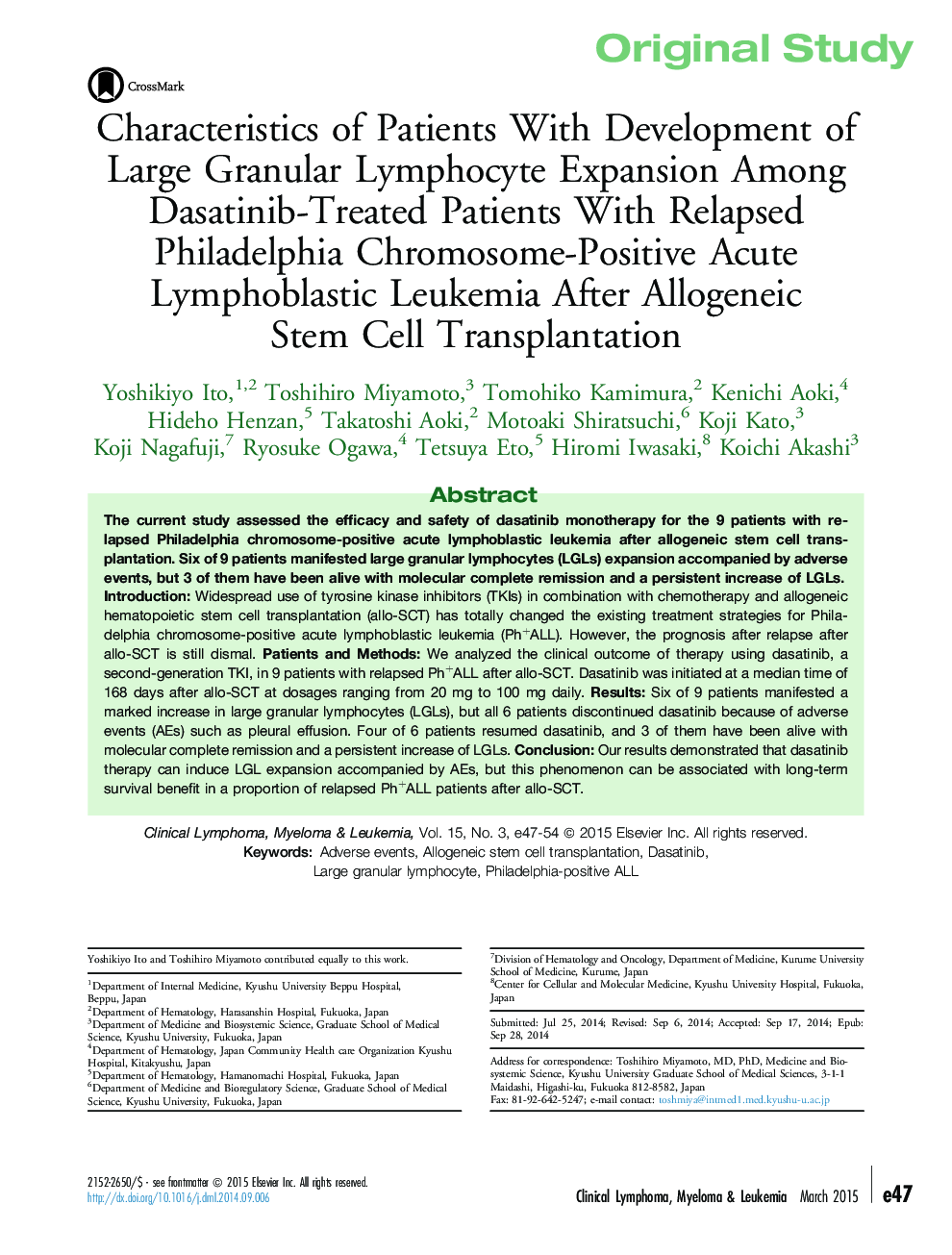| Article ID | Journal | Published Year | Pages | File Type |
|---|---|---|---|---|
| 2754266 | Clinical Lymphoma Myeloma and Leukemia | 2015 | 8 Pages |
IntroductionWidespread use of tyrosine kinase inhibitors (TKIs) in combination with chemotherapy and allogeneic hematopoietic stem cell transplantation (allo-SCT) has totally changed the existing treatment strategies for Philadelphia chromosome-positive acute lymphoblastic leukemia (Ph+ALL). However, the prognosis after relapse after allo-SCT is still dismal.Patients and MethodsWe analyzed the clinical outcome of therapy using dasatinib, a second-generation TKI, in 9 patients with relapsed Ph+ALL after allo-SCT. Dasatinib was initiated at a median time of 168 days after allo-SCT at dosages ranging from 20 mg to 100 mg daily.ResultsSix of 9 patients manifested a marked increase in large granular lymphocytes (LGLs), but all 6 patients discontinued dasatinib because of adverse events (AEs) such as pleural effusion. Four of 6 patients resumed dasatinib, and 3 of them have been alive with molecular complete remission and a persistent increase of LGLs.ConclusionOur results demonstrated that dasatinib therapy can induce LGL expansion accompanied by AEs, but this phenomenon can be associated with long-term survival benefit in a proportion of relapsed Ph+ALL patients after allo-SCT.
